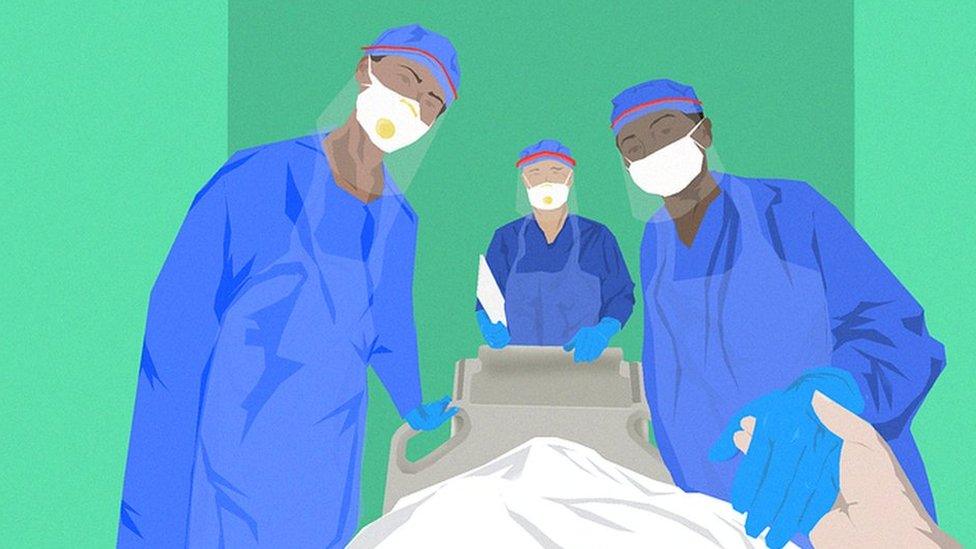Covid-19: Pandemic puts physiotherapists in spotlight
- Published
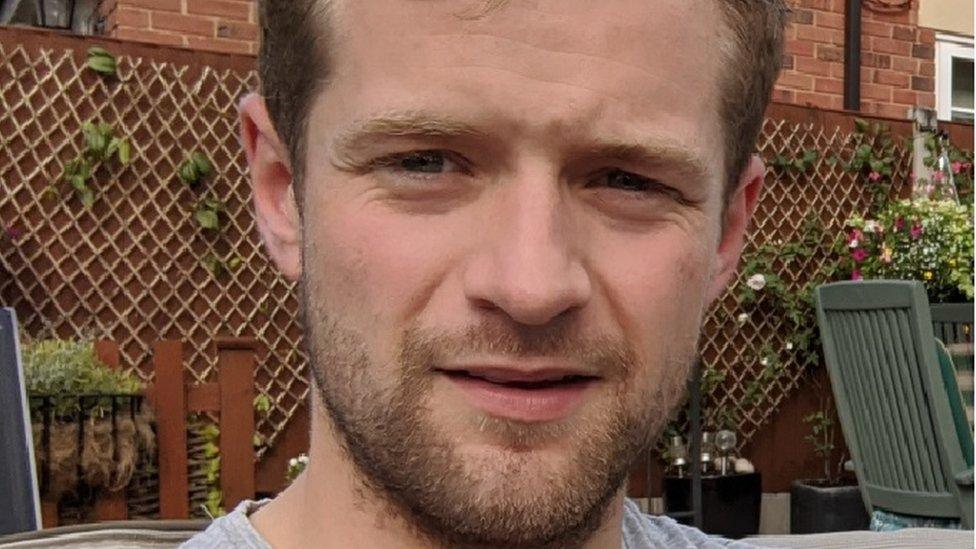
There are steady accounts of medics' battle to save the lives of Covid patients. Amid the reports it becomes clear the task is a marathon and not a sprint, with no one-size-fits-all approach to treatment and recovery. Physiotherapists are among those in it for the immediate and then longer haul. This is the story of the specialists whose daily lives have changed.
There are those who get Covid-19 and are asymptomatic. Others show mild effects. And some have more severe reactions requiring hospital treatment.
Those patients may need just a helping hand to get them through. But some will need intensive care, or even be placed in induced comas.
In such cases, whether during or after, organs and limbs are tested by Covid. And even beating the virus may not mean a steady road ahead without long rehabilitation.
Think of those whose lungs were aided by mechanical ventilators. Or the people coming out of comas to take their first steps after days - or weeks.
For some physiotherapists, thinking about them is all they do.
"Covid for us is 24/7," said Will Hook, a senior physiotherapist in intensive care at a hospital in Dudley, West Midlands.
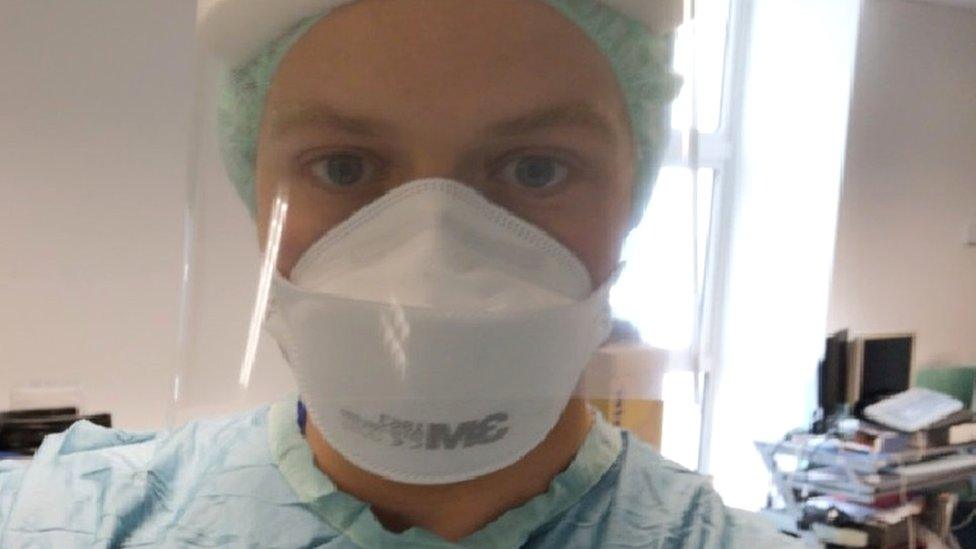
Mr Hook said patients he saw daily became "almost like family" during the pandemic's first wave
He said people tended to think of his job in terms of "bad backs" and "football team" injury, although his profession had always afforded him intensive care experience.
But it was nevertheless the case that as a musculoskeletal (MSK) specialist, he was used to helping people recover from surgery such as knee replacements.
That changed when the 26-year-old was called in to help with the first Covid-19 patients admitted to Russells Hall Hospital in March last year.
And he said despite his training and experience, none of it "prepared me fully for this new virus"; one which due to the headlines, he added, could make the situation feel relentless.
But he keeps going. "I want to carry on while the country is in this situation and keep doing my part."
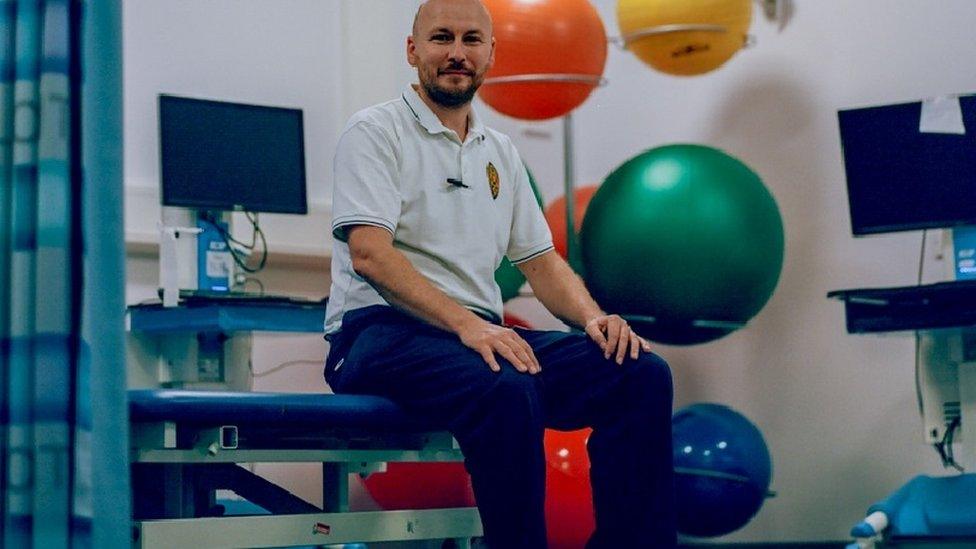
David McWilliams said having an emotional connection to patients was essential
Ten months on, Mr Hook remains a critical care worker, trying to save people struck down by the virus.
Part of his work involves moving sedated patients' joints to help keep up their muscle strength.
Other tasks, according to David McWilliams, a consultant physiotherapist at Coventry's University Hospital, include clearing secretions from the lungs of patients on ventilators, and helping re-expand collapsed areas. That made, he said, "physiotherapy vital in these early stages" of treatment.
As the coronavirus continues its onslaught, more than 4,000 patients are on mechanical ventilation in UK hospitals.
"I think the pandemic has highlighted the vital role of physiotherapists within ICU, both within the NHS and the wider population," said Mr McWilliams, who chairs the physiotherapy group for the European Society of Intensive Care Medicine.
He said Covid patients with respiratory failure needed "prolonged periods of mechanical ventilation", often for two weeks or more.
The sickest patients could lose up to 20% of their total muscle in seven days on a ventilator so "can't sit or move" when they come off the apparatus, adding to their fear and confusion, he explained.
"You are seeing people at the worst time in their life." And that, Mr McWilliams said, meant compassion, and having an "emotional connection" to patients, was essential.
But that connection was not without difficultly, he added.
During the second wave, ICUs are treating more people through non-invasive ventilation. This meant, he said, that staff had a chance to get to know patients. But knowing them was what could prove hard, should they later be put on ventilators, where the outcome from there was not guaranteed.
"From a resilience point of view, this may be tough and an emotional burden."
Instead, Mr McWilliams said he tried to focus on the positives. That included the reward of helping to save critically-ill people, then getting "the first glimpse of them as they are as a person".
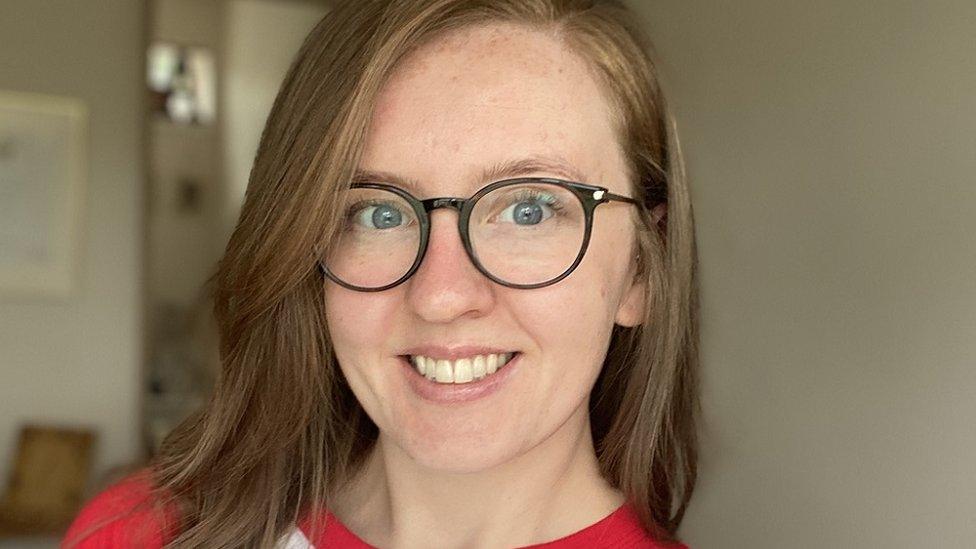
Ms Roberts said she was talking to family members to help deal with the pressure
Amber Roberts is a physiotherapist at Walsall Manor Hospital. Newly qualified, she started work a month before the pandemic hit.
She said it could be "really hard" for recovering patients to move again, "so to sit up is a really big step in recovery".
Staff wanted people to begin rehabilitation "as quickly as they can", she added, but said progress had to be balanced with their breathlessness and fatigue.
That can mean working on tasks like breathing techniques, or working on small goals at a time.
Ms Roberts, 24, was stunned when her tweet about helping someone received more than 31,000 likes.
She wrote: "So last week I cried because a patient in ITU held my hand and sobbed while still intubated and terrified. Today I cried because that same patient held my hand and sobbed that she could go home after we had walked together and planned discharge."
Allow X content?
This article contains content provided by X. We ask for your permission before anything is loaded, as they may be using cookies and other technologies. You may want to read X’s cookie policy, external and privacy policy, external before accepting. To view this content choose ‘accept and continue’.
"It's been rough but you just have to do your best," she said, adding that treating people who have an "unpredictable" virus - which can see them do well then deteriorate - was "a rollercoaster".
Remembering to "listen and be kind" were key teachings from her master's degree in physiotherapy, she said, adding they were also her personal beliefs.
"It's even more important without relatives there - you're that person for them so I try to give that extra five minutes.
"Being human and being kind are the most important things."
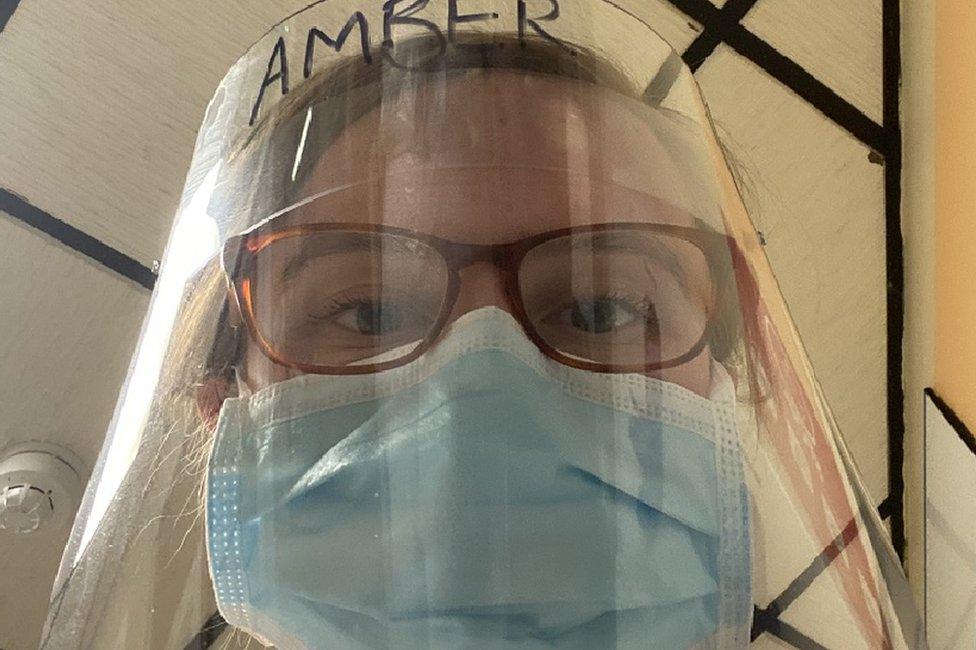
Amber Roberts said she had gained a lot of experience and become a better clinician after 11 intense months
The Chartered Society of Physiotherapy has called for a national strategy to meet a "growing demand" for rehabilitation services.
The Department of Health and Social Care said it had invested an extra £3bn towards such services and opened long Covid-specialist clinics.

Follow BBC West Midlands on Facebook, external, Twitter, external and Instagram, external. Send your story ideas to: newsonline.westmidlands@bbc.co.uk , external
- Published23 January 2021
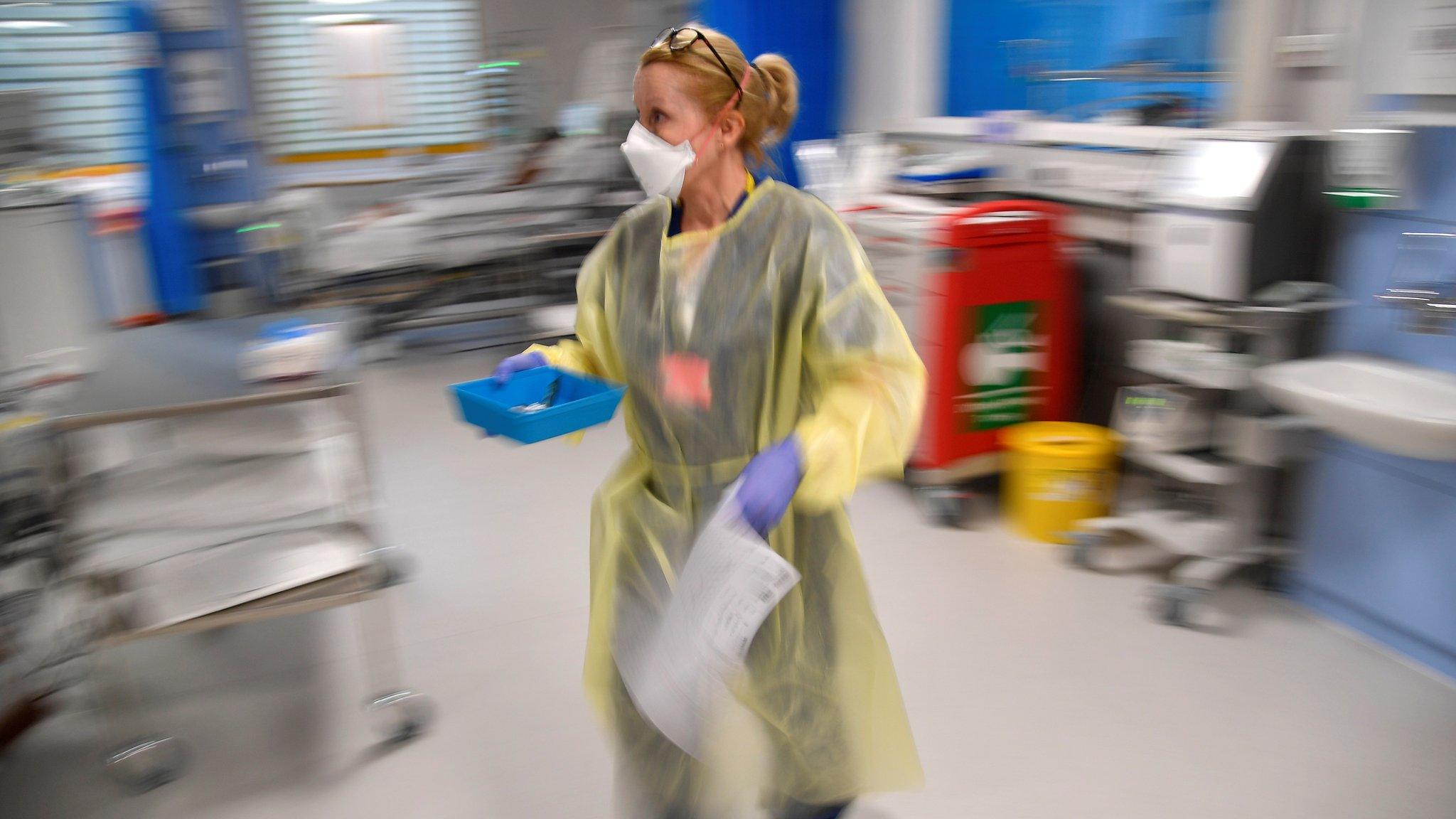
- Published21 January 2021
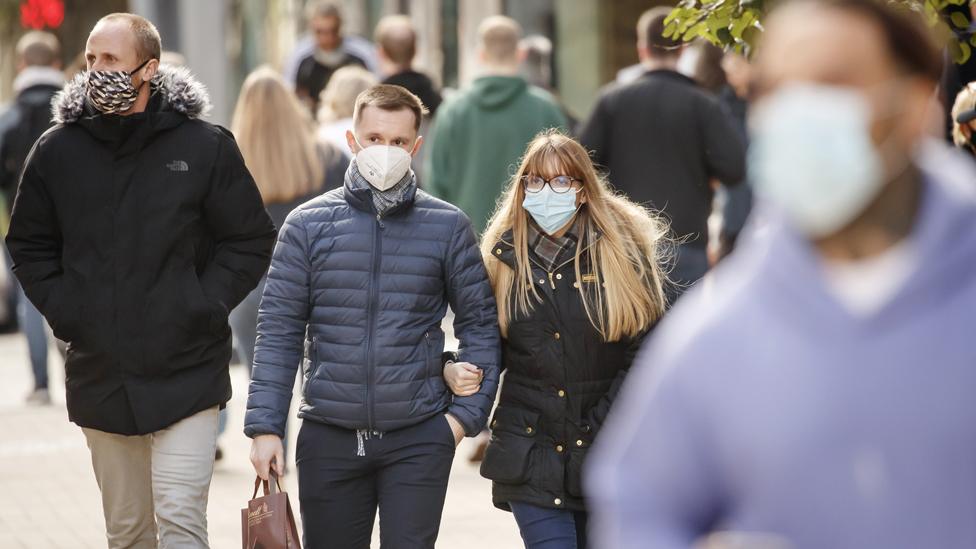
- Published20 January 2021
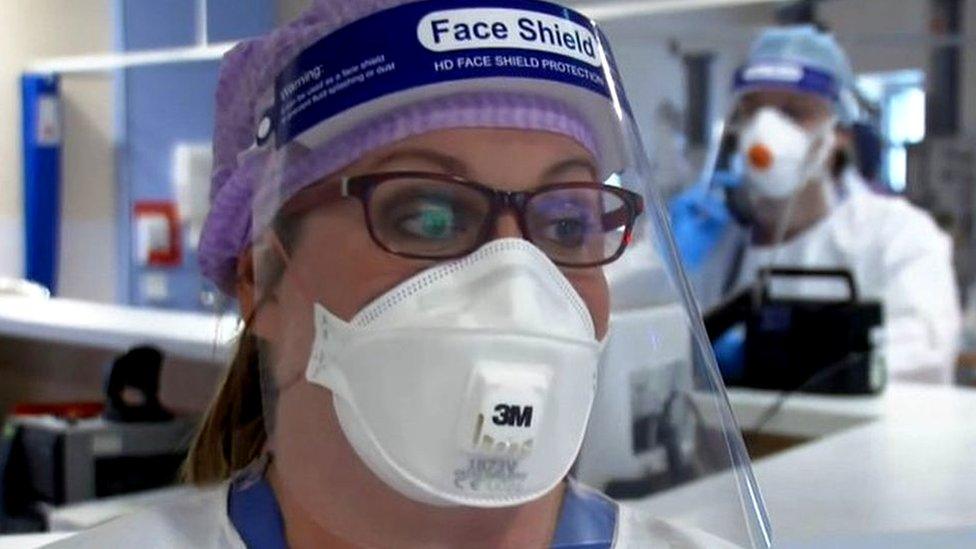
- Published29 December 2020
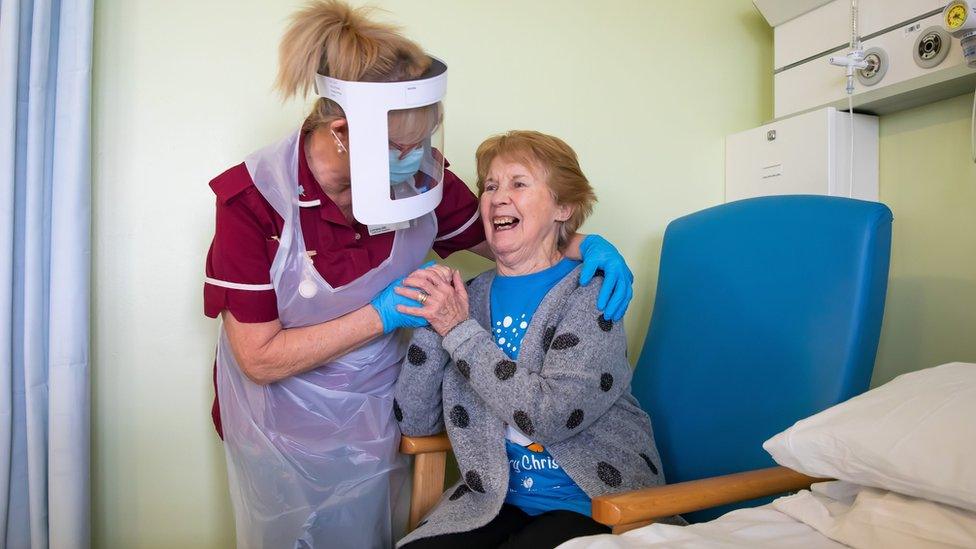
- Published26 October 2020
- Published30 April 2020
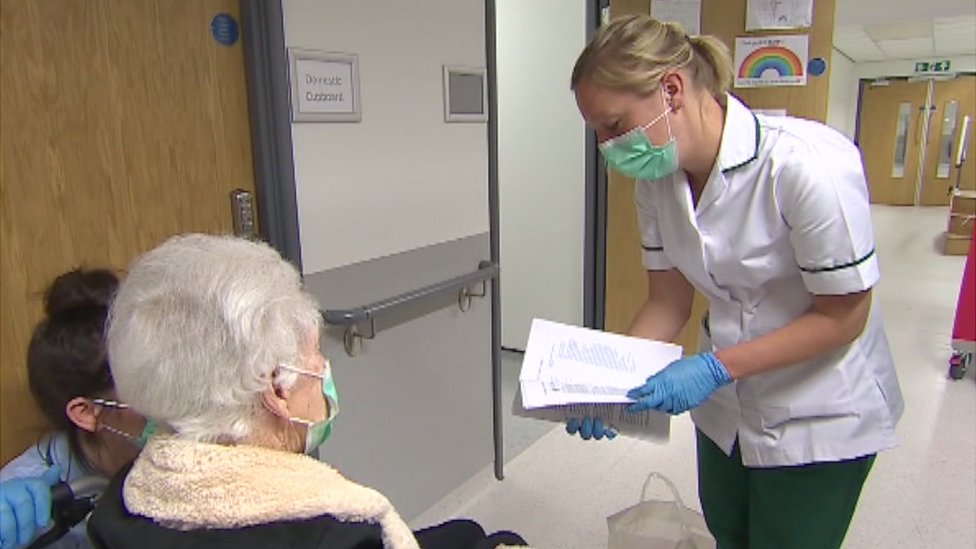
- Published3 July 2020
